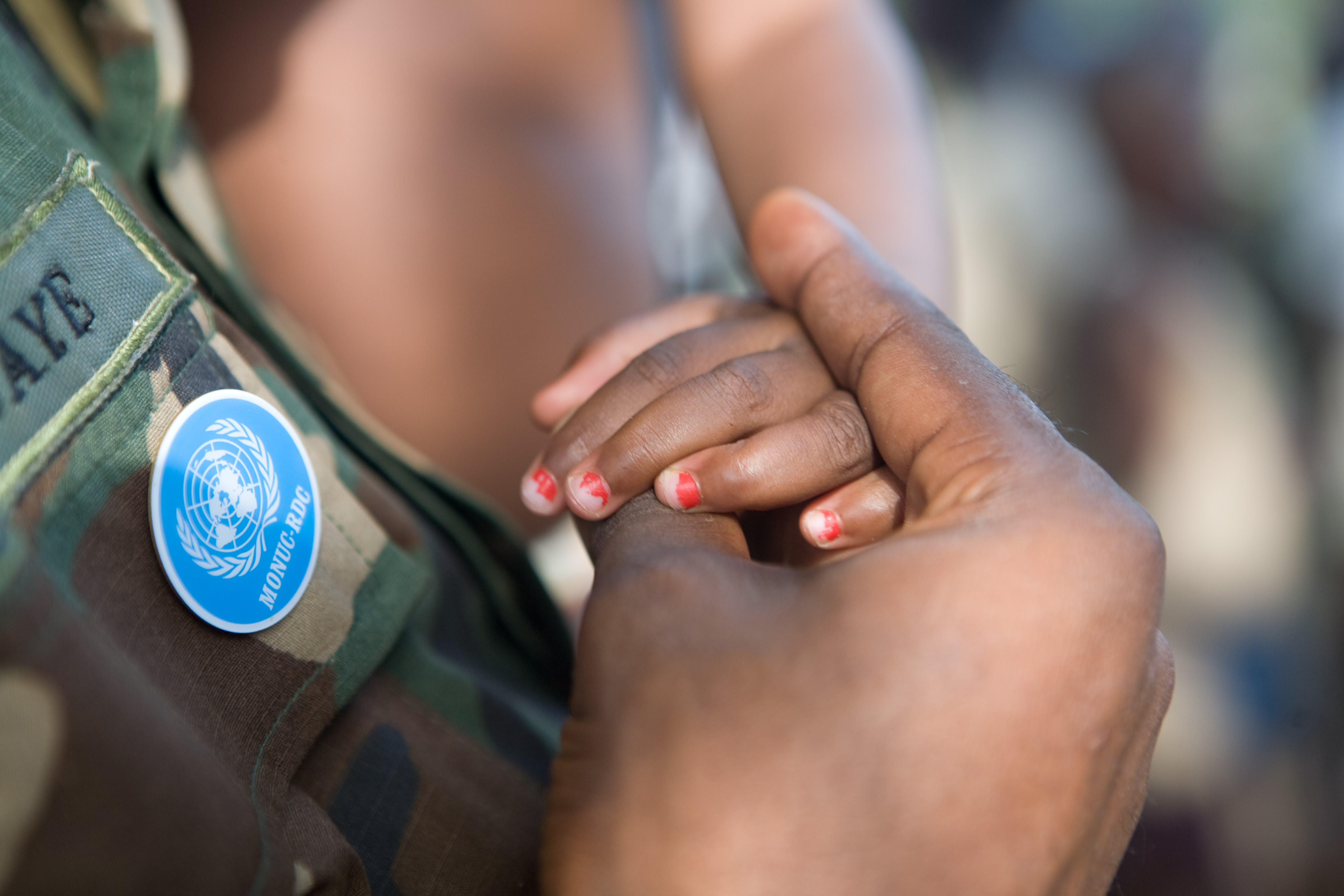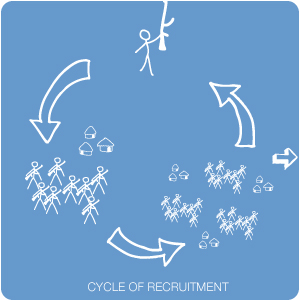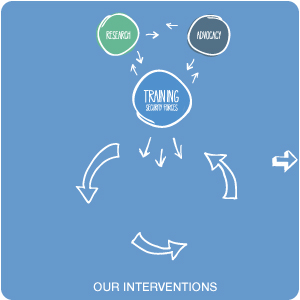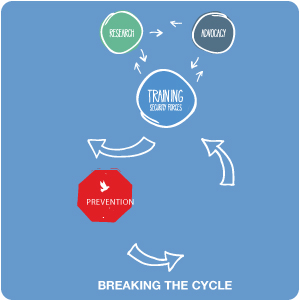Our mission is to develop and implement new strategies and tactical guidance to eradicate the use and recruitment of child soldiers around the world.
How We Achieve This Mission
Training
Deliver comprehensive, prevention-oriented training to military, police, peacekeeping and other security forces, which are often the first point of contact for child soldiers
Research
Conduct rigorous academic research at a world-class university to build—and share—knowledge, which in turn leads to new solutions
Advocacy
Develop partnerships to promote the universalization of, and adherence to, existing international conventions against the use of child soldiers, and to advocate for robust policy change where necessary.
Our Approach
Security forces using child soldiers often expand by forcibly recruiting children. Recruited children can also become tools for recruitment themselves by raiding more villages, creating a vicious cycle.
As they are recruited, they face traumatic experiences in the field, resulting in long-term psyco-social consequences. This can range from aggression to PTSD and substance abuse, well after return to civilian life. Ex-child soldiers who command forces often find it difficult to return home or to school where they are expected to be subservient.
The risk or perceived risk of recruitment can also disrupt communities, and can displace entire villages.
Through our work we aim to interrupt this cycle by training security sector personnel, who are often best placed to prevent this type of forcible recruitment. Military and police then develop higher levels of awareness and a strengthened ability to reduce recruitment, along with a series of improved behaviors for a wide-array of potential interactions with child soldiers.
Moreover, the research we conduct informs both our advocacy and our training efforts. Each core activity complements the others, and through this our training cirriculum is continually improved upon.
Our advocacy efforts lead to sensitization, awareness and regularized training curriculum for national security forces. This leads to changes in attitudes, behaviours and policy that protect children from their military recruitment. As a result, and with the help of well-trained security forces, fewer children are recruited each year, further interrupting the cycle.
Internationally, our efforts to train peacekeepers on how to interact with child soldiers in various situations provides options for extracting children from armed groups and ensures better prepared peacekeepers for complex operations. The more prepared peacekeepers are to deal with this eventuality, the less likely are the tactical advantages of using children by an armed group, hence the demand for the use of children is minimized.




